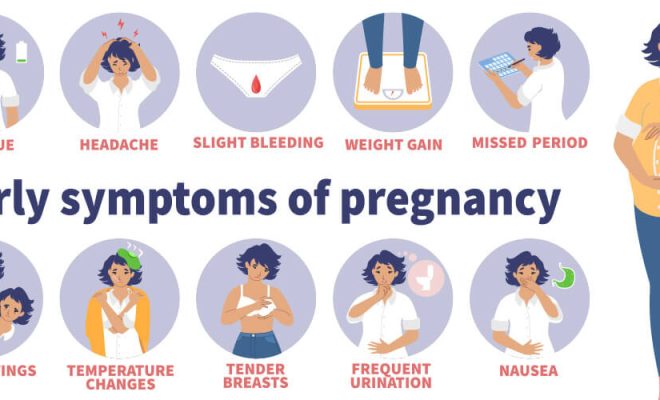Early Pregnancy Symptoms: How to Tell Before a Missed Period

Pregnancy brings about numerous changes in a woman’s body, and often these changes start occurring even before the traditional sign of a missed period. Being aware of these early pregnancy symptoms can help you identify them and take the necessary steps to confirm and care for your pregnancy. Here is an overview of early pregnancy symptoms to watch for before a missed period:
1. Implantation bleeding: About 10-14 days after conception, some women experience light spotting or bleeding as the fertilized egg attaches itself to the uterine lining. This is known as implantation bleeding and can be mistaken for a light period.
2. Cramping: Cramping during early pregnancy feels similar to menstrual cramps but is typically lighter and happens before a missed period.
3. Breast changes: Hormonal changes during early pregnancy can lead to swollen, tender, or sore breasts. You may also notice darkening of the areolas.
4. Fatigue: Increased levels of progesterone in early pregnancy can cause extreme tiredness and fatigue that may be noticeable even before missing your period.
5. Nausea and morning sickness: While morning sickness typically starts around six weeks into pregnancy, some women may experience it earlier. Nausea and vomiting can develop due to hormonal changes in the body.
6. Increased urination: If you’re pregnant, you might find yourself needing to pee more frequently than usual because of increased blood flow leading to increased urine production in your kidneys.
7. Food aversions or cravings: During early pregnancy, you may develop specific cravings or aversions due to hormonal fluctuations affecting your sense of taste and smell.
8. Mood swings: Mood swings and irritability are common during early pregnancy due to rapid hormonal shifts taking place in your body.
9. Basal body temperature elevation: In some women, basal body temperature (BBT) remains elevated for more extended periods during early pregnancy.
10. Bloating and gas: Progesterone levels in early pregnancy cause a slowing down of the gastrointestinal tract, leading to bloating, gas, and constipation.
It’s important to note that these symptoms vary in intensity and duration and do not occur for every woman. If you suspect you might be pregnant, consider taking a home pregnancy test or consult a healthcare professional for guidance. Prioritizing prenatal care is crucial for both your health and the development of your baby.






